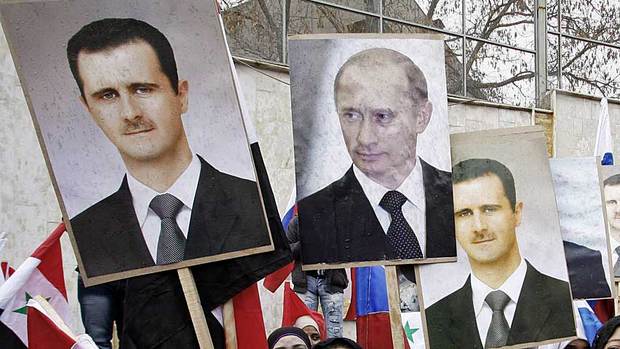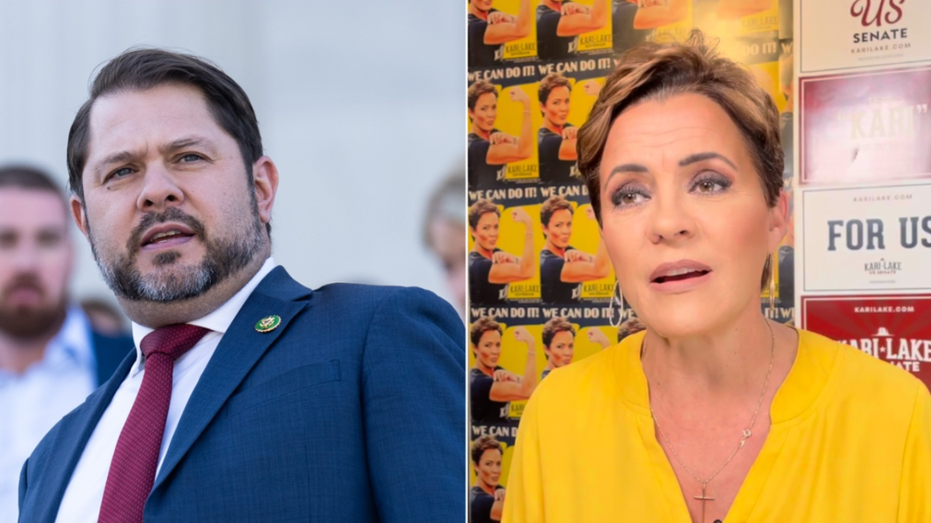Putin’s Syrian defeat can crumble under Trump’s Ukraine peace bargain
While Assad's fall has shuttered Russia's global power, Trump's plans to abandon NATO could hand Putin an even greater prize in Ukraine.


BERLIN – Donald Trump’s election as the 47th president of the United States has undoubtedly filled Russian President Vladimir Putin with hope.
Trump has long expressed his admiration for Putin, and he has given every indication that he will discontinue President Joe Biden’s policy of providing substantial material support to Ukraine — weapons, intelligence, and financing — in its defense against Russian aggression.
Moreover, Trump’s choice of vice president, J.D. Vance, shares his view, stating that “The American people will not tolerate another endless war, and neither will I.” With Republicans gaining control of both houses of Congress and pursuing draconian cuts to any spending that is associated with Democratic priorities, US support for Ukraine will soon be withdrawn. Regardless of what we tell ourselves, we Europeans will not be able to compensate for the loss of American financial and military aid for Ukraine. We have neither the will nor the capacity to do so. And while many have described recent developments in Syria as a loss for Putin, that doesn’t make them a win for the Ukrainians and Europe.
To be sure, Putin has lost a key ally with the downfall of Bashar al-Assad, and another important partner, Iran, has been significantly weakened in recent months.
The victory of Syrian opposition forces means that Iran will be deprived of its direct land bridge to Lebanon and the Mediterranean. Moreover, the Israelis have severely eroded Iran’s “axis of resistance,” eliminating the top leaders of Hezbollah and Hamas, and even taking out Iran’s primary domestic air defenses.
In the wake of the Assad regime’s collapse, Russia is withdrawing its forces from its air and naval bases on Syria’s Mediterranean coast, which means that it is losing essential conduits for supplying the forces it has deployed in various African countries. For a leader who harbors global power ambitions, this marks a severe setback.
Alternatively, Trump’s arrival in the White House could amount to a green light for Israel to launch strikes on Iranian nuclear facilities. Could the Iranian regime even survive such an attack politically, given its apparent weaknesses?
This scenario would be catastrophic for Putin’s dreams of global influence, because it would fundamentally alter Russia’s role in the Middle East and on the world stage. Former US President Barack Obama’s dismissive description of Russia as a “regional power,” rather than a great one, would be confirmed.
Russia would still have a powerful partner in China, but China’s own estimation of its northern neighbor’s importance would be significantly downgraded.
But another possibility is that Trump will simply roll over for Putin by forcing the Ukrainians into ceasefire negotiations and territorial concessions without any effective Western security guarantees.
In other words, from Europe’s perspective, Trump and Vance’s idea of peace will be nothing of the kind. Europe will continue to face profound risks to its security and internal cohesion, only now it will be confronting them alone. What will Putin do with the reprieve offered by a suspension of hostilities? What will it mean for Europe if the situation in Syria deteriorates and produces another 2015-style refugee crisis?
Faced with so much uncertainty, Europeans have no choice but to pursue considerable investments in rearmament and security, even if such outlays become more difficult under conditions of flagging growth and a new trade war.
It is easy to campaign on a message of “America first” when you have oceans and thousands of miles between you and the fraught conflict zones of Eastern Europe and the Middle East.
But Europeans enjoy no such luxury, and we no longer have any excuse for complacency.
Copyright: Project Syndicate. This article was published by Project Syndicate on 23 December 2024 and has been republished by Euromaidan Press with permission.
Editor’s note. The opinions expressed in our Opinion section belong to their authors. Euromaidan Press’ editorial team may or may not share them.
Submit an opinion to Euromaidan Press



